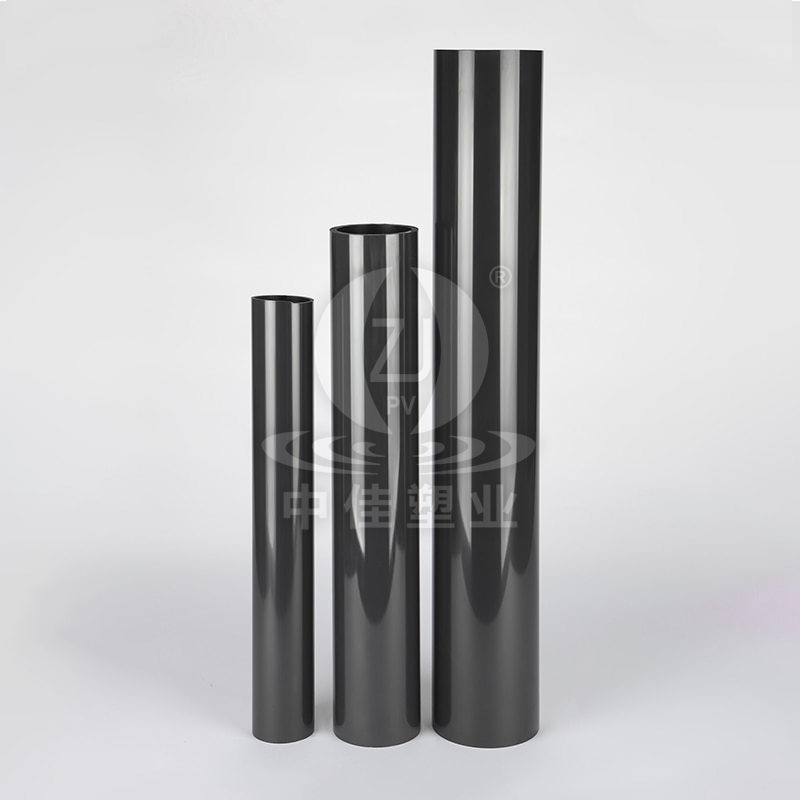

Plumbing and water supply systems rely heavily on durable, cost-effective, and corrosion-resistant pipes to ensure consistent performance. Among the various options available, uPVC S10 pipes have emerged as a popular choice for residential, commercial, and industrial applications. But what makes uPVC S10 pipes different from other types of pipes, and why are they favored in modern construction? This article explores their features, benefits, applications, and considerations, helping homeowners, engineers, and contractors understand their importance in plumbing systems.
What Are uPVC S10 Pipes?
uPVC, or unplasticized polyvinyl chloride, is a rigid form of PVC that offers exceptional strength, chemical resistance, and durability. The “S10” designation refers to a specific schedule or pressure rating indicating the pipe wall thickness and its ability to withstand internal pressure.
uPVC S10 pipes are primarily used for pressure and non-pressure applications, including potable water supply, drainage, and irrigation systems. Unlike traditional metal pipes, uPVC does not corrode or rust, ensuring a longer service life and minimal maintenance.
How Do uPVC S10 Pipes Work in Plumbing Systems?
The role of uPVC S10 pipes in plumbing is straightforward but critical: they transport water, chemicals, or other fluids safely and efficiently from one point to another. Their rigid structure and precise wall thickness allow them to handle both low-pressure and medium-pressure systems, making them versatile in different plumbing scenarios.
The S10 wall thickness ensures that the pipe can withstand internal pressures without cracking or deforming, while the smooth interior reduces friction and allows for efficient water flow. Additionally, their chemical stability makes them suitable for carrying potable water without leaching harmful substances.

What Are the Key Advantages of uPVC S10 Pipes?
uPVC S10 pipes offer several benefits that make them an attractive choice in modern construction:
Corrosion Resistance
Unlike metal pipes, uPVC does not rust, corrode, or scale, even in acidic or alkaline water conditions.
Durability and Longevity
With a lifespan often exceeding 50 years under normal conditions, these pipes provide long-term reliability.
Lightweight and Easy to Install
Their light weight simplifies transportation and handling, reducing labor costs and installation time.
Low Maintenance
uPVC pipes require minimal maintenance due to their resistance to chemical and biological attack.
Smooth Interior Surface
Reduces friction loss and prevents blockages, improving water flow efficiency.
Cost-Effectiveness
Lower material and installation costs make uPVC S10 pipes an economical alternative to metal or cement pipes.
Non-Toxic and Safe for Drinking Water
Certified for potable water use, uPVC S10 pipes do not contaminate water, making them safe for domestic supply systems.
What Are the Common Applications of uPVC S10 Pipes?
uPVC S10 pipes are versatile and widely used across various sectors:
Residential Plumbing
Water supply lines, bathroom fittings, and irrigation connections.
Commercial Buildings
Multi-story buildings use uPVC pipes for water distribution and drainage systems.
Industrial Use
Transporting non-corrosive chemicals or cooling water in factories.
Agricultural Irrigation
Used in sprinkler and drip irrigation systems due to their resistance to chemicals and sunlight.
Municipal Water Supply
Suitable for small to medium-pressure municipal pipelines carrying potable water.
Their versatility, durability, and safety make them suitable for almost every modern plumbing scenario.
How Do uPVC S10 Pipes Compare to Other Pipe Materials?
Compared to metal, cement, or traditional PVC pipes, uPVC S10 pipes offer several advantages:
Corrosion Resistance: Unlike steel or iron pipes, uPVC is immune to rust and scaling.
Weight and Handling: Lighter than metal or cement pipes, reducing installation effort.
Chemical Resistance: Can handle a wide range of chemicals without degradation.
Longevity: Often outlasts metal or cement pipes in similar conditions.
Cost Efficiency: Lower material and labor costs, making it ideal for budget-conscious projects.
While they may not be suitable for very high-pressure industrial applications, uPVC S10 pipes excel in residential, commercial, and moderate industrial uses.
What Should Be Considered When Using uPVC S10 Pipes?
Proper Joining Techniques
Use solvent cement or mechanical couplings to ensure leak-free connections.
Temperature Limitations
uPVC pipes are suitable for cold and ambient water but may not withstand high temperatures above 60°C.
UV Protection
Prolonged exposure to direct sunlight may degrade the material; painting or covering is recommended for outdoor installations.
Pressure Rating
Ensure the selected S10 pipe meets the required internal pressure for the specific application.
Support and Alignment
Proper spacing of pipe supports is necessary to prevent sagging or bending over long runs.
By considering these factors, uPVC S10 pipes can provide efficient, safe, and durable plumbing solutions.
Final Thoughts: Are uPVC S10 Pipes Worth the Investment?
The answer is a clear yes. uPVC S10 pipes combine durability, chemical resistance, ease of installation, and cost-effectiveness, making them an excellent choice for modern plumbing systems. Whether for residential water supply, commercial building infrastructure, or agricultural irrigation, these pipes provide reliable performance, minimal maintenance, and long-term savings.